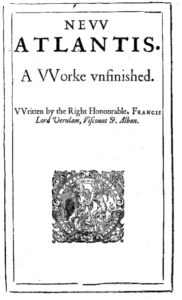Dear blog reader,
I first came across the work of our next contributor during conversations with my current post-doctoral supervisor, Professor Julio de Rose. I was talking to Julio about a short piece Dermot (Barnes-Holmes) and I had just finished writing for a special issue of the journal “Operants” commemorating the 50th anniversary of Skinner’s Beyond Freedom and Dignity (click here if you would like a look at those particular musings!) when Julio mentioned the fascinating doctoral work of a former student of his, our guest contributor, Dr César da Rocha. He told me that César had carefully explored the extent to which Skinner’s vision for the application of behavior analysis societally (in the likes of Walden 2 and Beyond Freedom and Dignity) was indeed utopian or could perhaps be potentially dystopian, an intriguing perspective I had never given much thought previously. In spite of my poor level of Portuguese, I attempted to read through César’s thesis and was immediately drawn in by his analyses. Given the aim of the current blog series toward developing a collaborative vision for the behavior-analytic study of symbolic language and thought as the field moves forward into an ever changing and uncertain world, Dermot and I thought it would be fitting to invite Dr da Rocha to revisit his analyses of Skinner’s works and contribute a blog to this effort. Such reflections seem as important now as ever as we as a field evolve and develop, while also fully recognising the importance of our core intellectual roots, both as a science and a philosophy.
Colin
About the author:
 César Antonio Alves da Rocha holds a BSc in Psychology from the State University of Maringá (2010), MSc in Psychology from the Federal University of Paraná (2013), and a Ph.D. in Psychology from the Federal University of São Carlos (2018). He is also an expert in History and Philosophy of Science (State University of Londrina, 2011). He was a visiting research scholar at Duke University (2017), and a post-doctorate researcher at the University of São Paulo (2022). His publications deal with relationships between radical behaviorism and other philosophical traditions, as well as intersections between behavior analysis, behavioral economics and public policy. Currently, he is a researcher associated with the Otávio Frias Filho Chair of studies in Communication, Democracy and Diversity at the Institute of Advanced Studies of the University of São Paulo (IEA-USP), a partnership between USP and the newspaper Folha de São Paulo. He was a professor at Universidade Santo Amaro (UNISA) and Centro Universitário São Camilo, and today works as a licensed clinical psychologist for adolescents, adults and couples in São Paulo.
César Antonio Alves da Rocha holds a BSc in Psychology from the State University of Maringá (2010), MSc in Psychology from the Federal University of Paraná (2013), and a Ph.D. in Psychology from the Federal University of São Carlos (2018). He is also an expert in History and Philosophy of Science (State University of Londrina, 2011). He was a visiting research scholar at Duke University (2017), and a post-doctorate researcher at the University of São Paulo (2022). His publications deal with relationships between radical behaviorism and other philosophical traditions, as well as intersections between behavior analysis, behavioral economics and public policy. Currently, he is a researcher associated with the Otávio Frias Filho Chair of studies in Communication, Democracy and Diversity at the Institute of Advanced Studies of the University of São Paulo (IEA-USP), a partnership between USP and the newspaper Folha de São Paulo. He was a professor at Universidade Santo Amaro (UNISA) and Centro Universitário São Camilo, and today works as a licensed clinical psychologist for adolescents, adults and couples in São Paulo.
Contact: alvesdarocha@gmail.com
Behaviorist Utopia: A Pluralist Take on B.F. Skinner’s Imaginative Endeavor
(clique aqui para a tradução em português deste blog)
In one of my favorite essays from G. K. Chesterton’s The Defendant, there is a passage that reads: “the function of imagination is not to make strange things settled, so much as to make settled things strange”. I used it as an epigraph for my doctoral thesis[1] because I could not find a more fitting quote to express my state of mind after writing a critique of B. F. Skinner’s Walden Two, and the social engineering program entangled in his claims for “cultural design”. The origin of my PhD work was an uneasiness with something already noted by Bobby Newman[2] thirty years ago: although intended as a utopia, why was Skinner’s novel deemed a dystopia by some?


Two metaphors established by Portuguese philosopher Hermínio Martins helped me to construct an analytical tool through which I examined Skinner’s texts: the Promethean and the Faustian metaphors. Each of them encompasses ideas from myths and legends that provide contrasting “narratives” about human progress. Whereas Prometheans conceive science (along with its technological fallouts) as a path to human liberation and the accomplishment of a “good life” for all (i.e., a utopian landscape), Faustians mistrust such a path, suspecting that the very science aimed at enabling progress may ultimately result in catastrophic scenarios (i.e., a dystopian landscape). Mankind thriving by the possession of fire stolen from God narrated in Aeschylus’ Prometheus bound, as well as the downfall resulting from bargaining extraordinary powers with a devil (Mephistopheles) narrated in J. W. von Goethe’s Faust, symbolically refer to two different stances towards the relation between science and progress.

Skinner’s enthusiasm with the discoveries from basic research about the behavior of organisms led him to an imaginative endeavor of portraying a scientifically managed community. Such a stance is reminiscent of previous efforts from others that share that same Promethean enthusiasm, either in philosophical or literary domains. Examples range from Francis Bacon’s utopia New Atlantis, a pioneer attempt to depict a society ruled by experts, to Auguste Comte’s positivist social philosophy, with its motto of “order and progress”. Theirs is a sort of utopianism that became common since the emergence of modern science and its philosophical counterpart: the Enlightenment. Modern scholars’ Promethean dream of a world perfected by science is specified by Skinner: it takes a world perfected by the science of behavior.
But modern age also brought about another cultural movement whose tenets were in direct quarrel with those of the Enlightenment: Romanticism. Deep-rooted subjectivism, primacy of passion over reason, and a focus on “inner reality” (rather than on the outer, natural world) are key elements of romantic worldview. In obvious contrast with Promethean optimism, the romantics also led to the development of defeatist traditions, as in the philosophical pessimism of A. Schopenhauer and the hopelessness from the tragic writings of Goethe. The romantic (Faustic) reaction to the (Promethean) Enlightenment established an antithesis which in literature is expressed by the notions of utopia and dystopia (or antitutopia).

My understanding of such historical relations – fundamental for my subsequent appreciation of Skinner’s ideas – was enabled by my contact with the work of political theorist Sir Isaiah Berlin (1909-1997). In a remarkable essay titled The decline of utopian ideas in the West, Berlin explains what he deemed the “disturbing heritage” of the Romantic movement, which involves the assumption that any given social environment is inextricably pervaded by contrasting, often conflicting sets of values. Berlin’s philosophy is often described as pluralist precisely for his remarks about such axiological pluralism, something pointed out by Romantics in their critique to Enlightenment’s aim at achieving a perfect, frictionless, utopian society:
“The notion that there exists a celestial, crystalline sphere, unaffected by the world of change and appearance, in which mathematical truths and moral or aesthetic values form a perfect harmony, guaranteed by indestructible logical links, is now abandoned, or at best is ignored. That is at the heart of the Romantic movement, the extreme expression of which is the self-assertion of the individual creative personality as the maker of its own universe . . . the notion of a harmonious solution of the problems of mankind, even in principle, and therefore the very concept of Utopia, is incompatible with the interpretation of the human world as a battle of perpetually new and ceaselessly conflicting wills, individual or collective.” (Berlin, 1978/1990, pp. 45-46)[3]
Whereas utopias tend to be seen as imaginative efforts for illustrating expectations on how a perfected society could/should be, dystopias result from endeavors that express the Romantic critique described by Berlin. As in Yevgeny Zamyatin’s We, Aldous Huxley’s Brave New World, or George Orwell’s Nineteen-Eighty-Four, dystopias often portray concerns either about political power, scientific and technological advancements, or the alliance between them. So how could Skinner’s Walden Two, with all its praise of the virtues of science, be mistaken as a dystopia?
My attempt to answer such a question involved identifying Promethean versus Faustian leanings in Skinner’s social philosophy, as well as utopian versus dystopian traits in Walden Two. The notion of “cultural design”, extensively discussed in Beyond Freedom and Dignity, was of central interest since it represents the paramount of Skinnerian optimism. Skepticism over liberal democratic societies potential to overcome the most alarming concerns faced by mankind led Skinner to vindicate that (behavioral) science should be assured a privileged position to rule over cultural practices. Even though science may not always have all the right answers to whatever problems were to be solved, he claimed, a scientific approach could at least indicate the possibly most promising path to be taken – in a clear Promethean spirit.
Conversely, since Science and Human Behavior, Skinner provided alerts on the misuses of science, but his more Faustian concerns showed up only in the last decade of his publications. The so-called “controlling agencies” of behavior, originally described as such in 1953 (i.e., government, religion, economy, education and psychotherapy), were given more centrality in his 1987 manifesto Why are we not acting to save the world?, when Skinner’s skepticism turned into a sort of pessimism. Noting that those who could better plan cultural practices (i.e., scientists) were not those in position to institute them for society at large (i.e., politicians, often tied with economic and religious leaders), as well as indicating that the controlling agencies often work for their own aggrandizement, Skinner seemed disenchanted with the possibilities of science to lead great social change. The best hope would be for scientists, aligned with journalists and intellectuals, to gather in a “fourth state”, whose aim would be to pressure those in power to promote change. That is, hope would rest in the hands of those Skinner deemed “the uncompromised”, which meant that scientists should more properly act from outside the controlling agencies. Trying to establish cultural design from inside the controlling agencies would invariably mean to work for those own agencies’ perpetuation – a Mephistophelean bargain, at least in a framework where some of these agencies are themselves considered part of the problem to be solved.

It is interesting to note how some of these features of Skinner’s thinking were already depicted in Walden Two, published decades before, whereas others seem to have undergone deep shifts, or even been abandoned. For instance, Skinner’s skepticism with democracy is expressly stated by the words of Frazier, founder of Walden Two and an alter-ego of Skinner as stated by himself in his autobiography. Although never using such a word to describe Walden Two’s system of government, Skinner proposed a technocracy as an ideal means of dealing with communitarian issues: Walden Two was ruled not by a democratically elected government, but by a board of experts, with little to no power assured to lay people. And this is probably one of the aspects that justify much of Skinner’s critics to consider the book a dystopia.
Consider, for example, Skinner’s take on the relation between lay people and experts discussed in chapter 29, where it is stated that even if experts do not know which path to follow they must pretend to knowin order to assure their position of power: “The experts must either disguise their experiments and pretend to know the outcome in advance or stop experimenting altogether and struggle to maintain the status quo” (Skinner, 1948/2005, p. 251)[4]. Moreover, one must consider Frazier’s remarks, from chapter 27, on how to deal with those unwilling to conform to the community’s norms and rules: “The man has tied himself up with a moribund competitive society. All we can do is make his personal demise as painless as possible, unless he’s intelligent enough to adjust to the new order” (Skinner, 1948/2005, p. 216).
It is my own personal feeling that those were to be considered stunning remarks for any behavior analyst who see themselves as democrat, given the centrality of Skinner’s influence to this day in the behavior-analytic community. No wonder Walden Two was deemed a dystopia by some, I finally understood: the resort to shady strategies (i.e., pretend to know an experiment’s outcome) to maintain a group’s exclusive position of power, as well as the enforcement of conformity by whatever means needed (i.e., whatever Skinner aimed to mean by the expression “personal demise”), portrait scenarios closer to dystopias than utopias. Considering this, what could be Walden Two’s contribution as a source to think about nowadays social issues, if any?
If I were to choose one single aspect to point out as a common feature between Walden Two and contemporary political theories, it would be their concerns over liberal democratic societies’ fate. Thirty years ago, that would not be the case: in the early 1990’s, a widespread expression in reference to liberal democracy was the end of history. Scattered mainly via the work of Francis Fukuyama, such an expression emerged along with the end of Cold War and the fall of the Berlin Wall, and it denoted the assumption that with the clash of communist regimes, democratic liberalism was to be considered the acme of a progressive development in political systems. Now, three decades later, another widespread expression – the crisis of liberal democracy – demonstrate that Fukuyama’s prognostic was, if not completely mistaken, at least far too idealist. Worldwide, liberal democracy as a model of government is endangered.
Contemporary political thinker Yascha Mounk, for instance, states that there are currently two main threats to liberal democracy: populism and technocracy. On the one hand, populism refers to a trend among policymakers to concede to popular opinion even when popular demands are technically unattainable or endanger individual rights. On the other hand, technocracy refers to political decision-making processes being held exclusively by technicians, bureaucrats, or professional politicians, with little to no room provided for direct, participatory democratic mechanisms. These are considered threats to liberal democracy given its very definition as a system that coordinates individual rights (therefore liberal) with popular will (therefore democratic).
Whereas populist regimes tend to suffocate individual rights for the sake of popular will (i.e., democracy without rights), technocrats often justify their position as if needed for an effective preservation of individual rights (i.e., rights without democracy). I tend to agree not only with Mounk’s diagnosis about the current crisis of liberal democracy, but also with his evaluation that there is no easy way out of it. The only (hard) way to preserve liberal democracy along with its original virtues would be to reform democratic institutions in order to establish a better balance between technical capacity and respect for the popular will. And this is where, I think, Skinner’s thinking may play an uplifting role.

By wondering about substitutes for then current societal arrangements, Skinner invited their readers to question the presumed naturality of the status quo, as well as imagined a new scenario of his own predilection. One may understand and learn from Skinner’s critiques, without the need to agree with the alternative imagined – and the dystopian leanings it entails, such as its apology of technocracy. Indeed, this seems to be the most reasonable way to appreciate Walden Two, given that the main lesson from the story is about the priority of a ceaseless experimental stance. Thus, those committed to wonder about possible solutions to current social concerns may conceive Walden Two as a source for inspiration even if the conclusions reached were to be different, even opposing to those provided by Skinner.
Thus, when reading Walden Two, a book from 1948, one must consider how its vices reflect its Zeitgeist(that is, anachronism must be avoided), as well as be able to criticize some of Skinner’s ideas, while simultaneously recognizing virtues in others, some of which may be of particular interest of those worried with our current “crisis of liberal democracy”. How to provide room for lay people to participate in policymaking while still prioritizing experts’ opinion on topics for which it is decisive? When it comes to public policy, must science seize a privileged status over other kinds of knowledge? A critical reading of Walden Two may help provide answers for such questions whether the reader agrees or disagrees with the novel’s own proposed solutions to questions alike.
In sum, I believe that a pluralistic perspective on Skinner’s imaginative endeavor (that encompasses both its Promethean as well as its Faustian leanings) may encourage uplifting reflections on current cultural practices, inspiring doable, small-scale interventions (i.e., the so-needed reforms of democratic institutions), instead of revolutions of utopian proportions. Hope for the future need not be a stillborn dream, nor the longing for an unreachable dreamland. For pluralism is not defeatist, nor radical, but moderate and sober in its vindications for social transformation. Far from being a behaviorist blueprint for the perfect society, Skinner’s insights on cultural design need not be taken as tools for establishing a utopian landscape. Instead, they may be conceived as fuel for political imagination, that is, an inspirational source to imagine alternative social arrangements and wonder about feasible futures.
[1] I was lucky enough to have three extraordinary scholars as advisors, with Dr Julio de Rose as my formal advisor at UFSCar, Dr Carolina Laurenti as a co-advisor and Dr John Staddon as my supervisor during a brief period of internship at Duke University. Different as they are, each provided unique takes on Skinner’s work, which led me to explore ever more different aspects of Skinnerian thinking. I am forever grateful for the advising, guidance, and especially the patience those three provided me during those years, without which my work would not be possible.
[2] See Newman, B. (1993). Discriminating utopian from dystopian literature: why is Walden Two considered a dystopia?. The Behavior Analyst, 16, 167–175. https://doi.org/10.1007/BF03392621
[3] Berlin, I. (1990). The decline of utopian ideas in the West. In I. Berlin, The crooked timber of humanity: Chapters in the history of ideas (pp. 20-48). John Murray. (Original work published in 1978).
[4] Skinner, B. F. (2005). Walden two. Macmillan. (Original work published in 1948)
